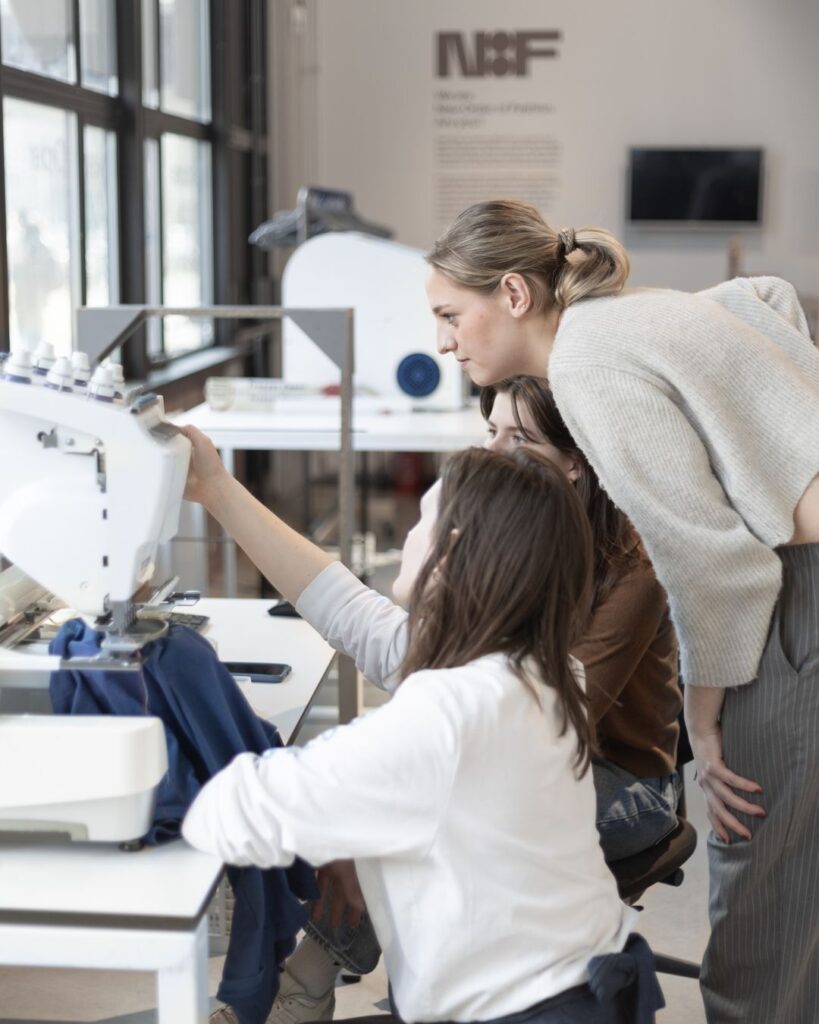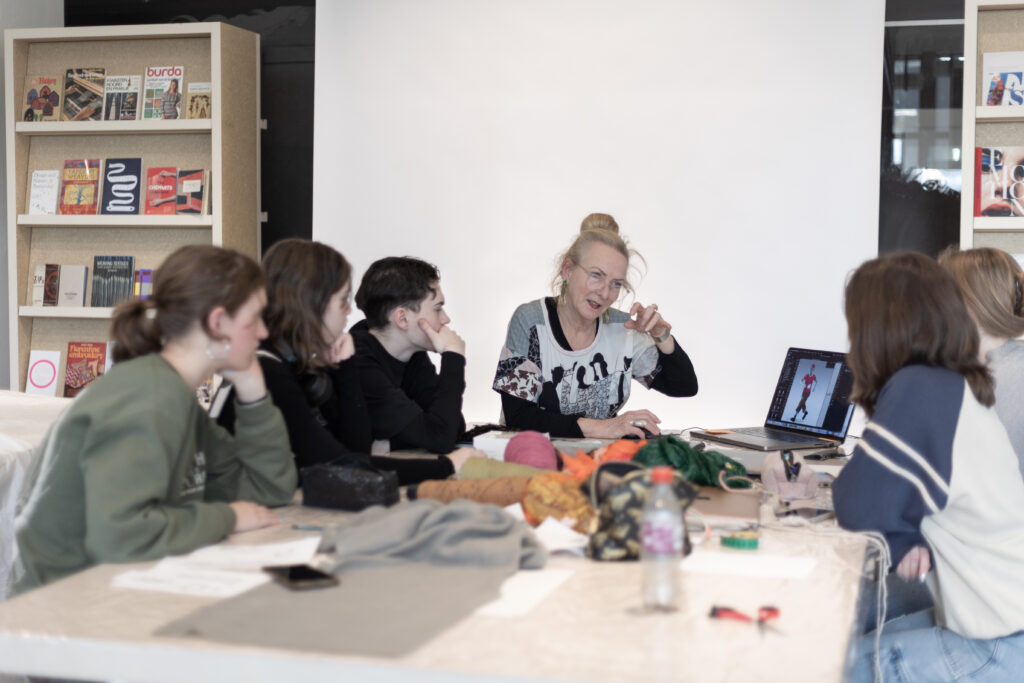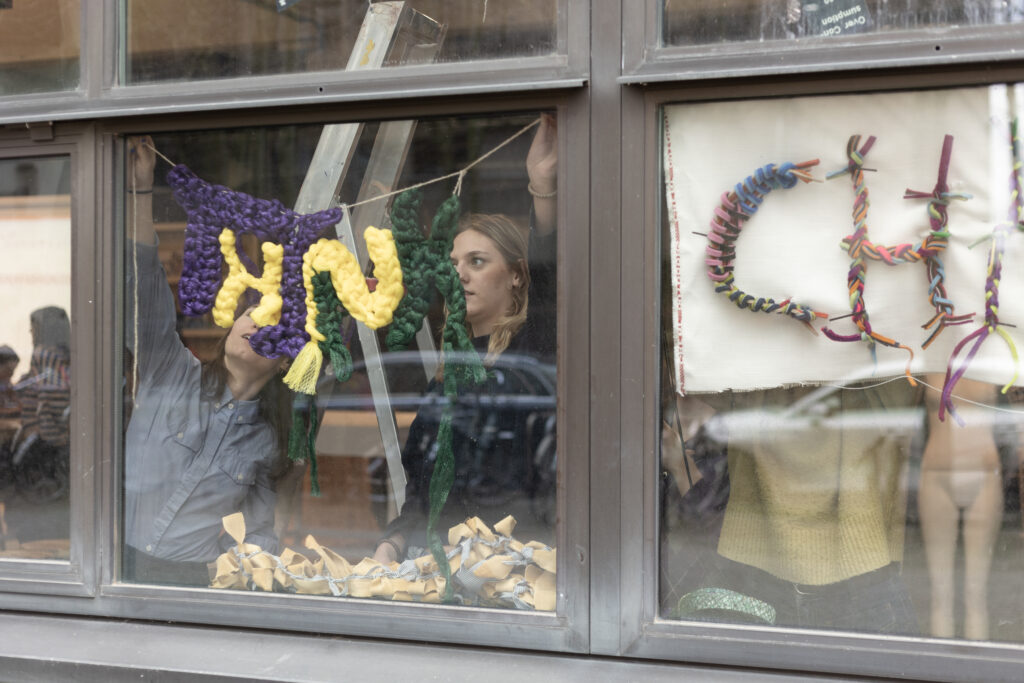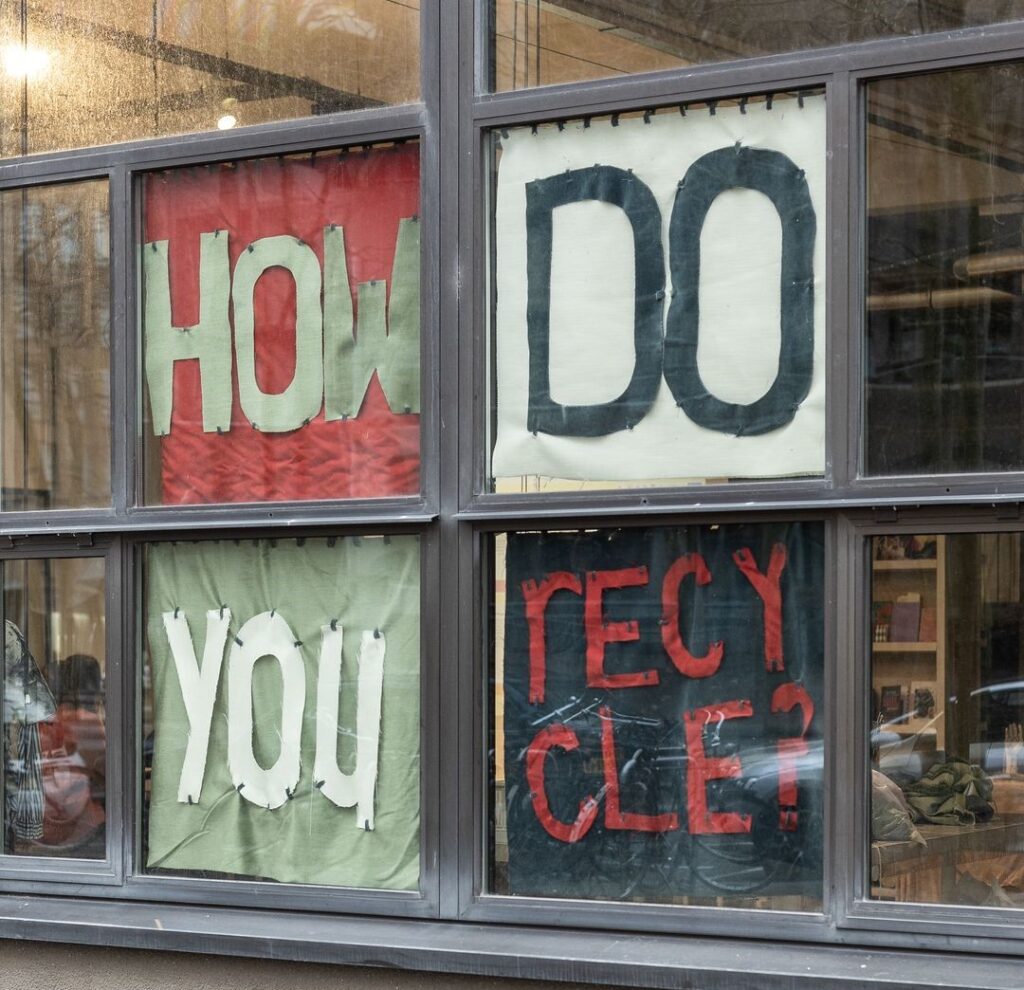In the Netherlands, New Order of Fashion and Amsterdam University of Applied Sciences worked together to deliver a 3-day intensive pilot to local VET Students studying ‘Creatief Vakmanschap’ (Creative Craft with a Textile focus) at Sint Lucas College, Boxtel.
Based on the needs of the students and teachers at Sint Lucas, the pilot was co-created to explore and test a number of Transitions curriculum learning units with the students, under the heading of ‘Sustainability 101’. This could be considered an introductory crash-course in circular strategies and design principles. Day one introduced students to the problems caused by the fashion and textile industry through a ‘shock factor’ presentation and discussion. Using lectures and active & embodied learning methods, students engaged with the following Transitions strategies; Waste Reduction, Post-Use Materials, Extending Lifecycles, Enabling Repairability, and Joining Closed Loop Recycling.
On the second day of the pilot, students engaged again with the strategies of the previous day, in addition to exploring the following learning units in lecture and mini-workshop formats: From Sustainable to Circular Materials (relating to Waste Reduction and Closed Loop Recycling), User as Stakeholder, Enabling Repairability & Personalisation (Group 1), Digital Product Passports & EPR (Group 2) Virtual Sampling & Digital Worlds (Group 3). Some workshops were taught together, and some in smaller groups, to allow deeper engagement with the subject and hands-on experience of the strategy.
Day two and three of the pilot were framed by a group exercise to produce communicative textile banners on learnings from the workshops they attended, culminating in an exhibition in the windows of New Order of Fashion LAB. The students were challenged to design and make the banners from deadstock, pre-consumer cutting waste, and found materials from their school waste streams. Students worked together to co-design and build a plan of execution, develop their concept and message, and reflect on their individual and group learnings from the workshops – attempting to implement circular strategies where possible.
Day three focused on banner production, a reflective workshop ‘Developing Competencies’ where the students mapped the perceived relevance of the Transitions learning unit contents on an axis of personal and professional development, exhibition install and final presentations.
The teachers were delighted to see many groups chose to make their banners without sewing, gluing or any permanent fastenings – instead of using textile techniques such knotting, knitting and weaving to enable mono-material elements to be separated again and reconfigured at a later stage, in order to easily enable the material’s next lifecycle, and eventual separation and recycling.



